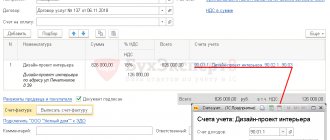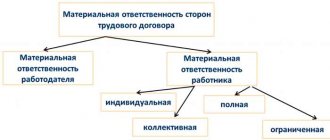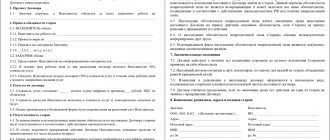1. The simplified taxation system for organizations and individual entrepreneurs is applied along with other taxation regimes provided for by law
Russian Federation on taxes and fees.
(as amended by the Federal Law
dated July 21, 2005 N 101-FZ)
The transition to a simplified taxation system or a return to other taxation regimes is carried out voluntarily by organizations and individual entrepreneurs in the manner prescribed by this chapter.
(as amended by the Federal Law
dated July 21, 2005 N 101-FZ)
2. The application of the simplified tax system by organizations provides for their exemption from the obligation to pay corporate income tax (with the exception of tax paid on income taxed at the tax rates provided for in paragraphs 1.6
,
3
and
4 of Article 284
of this Code), property tax of organizations (except for the tax paid in respect of real estate objects, the tax base for which is determined as their cadastral value in accordance with this
Code
).
Organizations applying the simplified taxation system are not recognized as taxpayers of value added tax, with the exception of value added tax payable in accordance with this Code
when importing goods into the territory of the Russian Federation and other territories under its jurisdiction (including tax amounts subject to payment upon completion of the customs procedure of the free customs zone on the territory of the Special Economic Zone in the Kaliningrad Region), as well as value added tax paid in accordance with
Articles 161
and
174.1
of this Code.
(as amended by Federal Laws dated December 31, 2002 N 191-FZ
, dated 07.07.2003
N 117-FZ
, dated 07.21.2005
N 101-FZ
, dated 17.05.2007
N 85-FZ
, dated 22.07.2008
N 155-FZ
, dated 24.07.2009
N 213-FZ
, dated 27.11.2010
N 306-ФЗ
, from 04/02/2014
N 52-ФЗ
, from 11/24/2014
N 376-ФЗ
, from 03/30/2016
N 72-ФЗ
, from 11/27/2017
N 335-ФЗ
)
The paragraph became invalid on January 1, 2010. - The federal law
dated July 24, 2009 N 213-FZ.
Other taxes, fees and insurance premiums are paid by organizations applying the simplified taxation system in accordance with the legislation on taxes and fees.
(as amended by Federal Laws dated July 21, 2005 N 101-FZ
, dated November 30, 2016
N 401-FZ
)
3. The application of a simplified taxation system by individual entrepreneurs provides for their exemption from the obligation to pay personal income tax (in relation to income received from business activities, with the exception of tax paid on income in the form of dividends, as well as on income taxed at tax rates provided for in paragraphs 2
and
5 of Article 224
of this Code), property tax for individuals (in relation to property used for business activities, with the exception of objects of taxation with property tax for individuals included in the list determined in accordance with paragraph 7 of Article
378.2
of this Code, taking into account the specifics provided for
in paragraph two of paragraph 10 of Article 378.2
of this Code).
Individual entrepreneurs applying the simplified taxation system are not recognized as taxpayers of value added tax, with the exception of value added tax payable in accordance with this Code
when importing goods into the territory of the Russian Federation and other territories under its jurisdiction (including tax amounts, payable upon completion of the customs procedure of the free customs zone on the territory of the Special Economic Zone in the Kaliningrad Region), as well as value added tax paid in accordance with
Articles 161
and
174.1
of this Code.
(as amended by Federal Laws dated December 31, 2002 N 191-FZ
, dated 07.07.2003
N 117-FZ
, dated 07.21.2005
N 101-FZ
, dated 17.05.2007
N 85-FZ
, dated 22.07.2008
N 155-FZ
, dated 24.07.2009
N 213-FZ
, dated 27.11.2010
N 306-ФЗ
, from November 24, 2014
N 366-ФЗ
, from November 29
N 382-ФЗ
, from March 30, 2016
N 72-ФЗ
, from November 27, 2017
N 335-ФЗ
)
The paragraph became invalid on January 1, 2010. - The federal law
dated July 24, 2009 N 213-FZ.
Other taxes, fees and insurance premiums are paid by individual entrepreneurs using the simplified taxation system in accordance with the legislation on taxes and fees.
(as amended by Federal Laws dated July 21, 2005 N 101-FZ
, dated November 30, 2016
N 401-FZ
)
4. For organizations and individual entrepreneurs applying the simplified taxation system, the current procedures
conducting cash transactions and
the procedure
for submitting statistical reporting.
5. Organizations and individual entrepreneurs applying the simplified taxation system are not exempt from performing the duties of tax agents, as well as the duties of controlling persons of controlled foreign companies provided for by this Code.
(as amended by the Federal Law
dated November 24, 2014 N 376-FZ)
How is USNO deciphered? What it is?
In business, the abbreviation simplified tax system is more often used, but simplified taxation system is also an acceptable abbreviation. Explanation of simplified taxation system - simplified taxation system. In colloquial use the word “simplified” is used. This is a special tax regime that entrepreneurs and organizations can use for their activities. Using the simplified regime, organizations make their functioning easier, as they become free from paying many taxes. They do not pay income tax, property tax (except for cases expressly specified in the law), and are exempt from VAT (also with some exceptions). The simplified form for individual entrepreneurs also has an additional feature - you don’t have to keep accounting records. Individual entrepreneurs using the simplified tax system do not pay personal income tax (except for cases specified in the law), VAT (there are also exceptions) and property tax for individuals (property assessed at cadastral value is excluded). So, the decoding of the simplified taxation system abbreviation is quite simple. A simplified taxation system helps entrepreneurs and organizations conduct business without burdening them with the payment of all taxes provided by law. This system, as its name suggests, simplifies the complex process of paying taxes to the state budget. But not all organizations and entrepreneurs can use it. For the simplified tax system, two conditions must be met:
- the number of payer employees for the tax period should not exceed 100 people;
- income for 9 months of the year in which the notice of transition is submitted should not exceed 45 million rubles (for the transition to the simplified tax system in 2021, this threshold is higher - 59.805 million rubles for 9 months of 2016).
Can individual entrepreneurs issue invoices including VAT under the simplified tax system?
Individual entrepreneurs using the simplified tax system do not pay value added tax (VAT). An exception is VAT paid when importing goods into Russia, as well as VAT charged in connection with the implementation of a simple partnership agreement. Only VAT payers are required to prepare invoices. Therefore, the issuance of invoices by an entrepreneur using a special regime, such as “simplified taxation”, will be evidence that this individual entrepreneur is a VAT payer. If an individual entrepreneur includes VAT in the invoices issued, then the tax amount will need to be excluded from expenses. This will increase the tax burden on the entrepreneur and lead to an increase in the price of goods, work or services provided by this individual entrepreneur. Simplification for individual entrepreneurs is a voluntary choice. Therefore, entrepreneurs who find it more profitable and convenient to pay VAT and wish to issue invoices can choose the general taxation regime for their activities. If before this the individual entrepreneur used a simplified regime, then he can change the regime from the beginning of the calendar year. To do this, it is enough to notify the Tax Service before January 15 of the year in which the transition will take place. So, individual entrepreneurs cannot issue invoices including VAT under the simplified tax system. To become a VAT payer, an entrepreneur needs to change the special tax regime to a general one.
How to obtain VAT exemption in 2020-2021
Start applying VAT exemption under Art. 145 of the Tax Code of the Russian Federation is possible from the first day of any month during the calendar year. In this case, you must inform your Federal Tax Service about the application of the exemption no later than the 20th day of the month from which you began to use the exemption (clause 3 of Article 145 of the Tax Code of the Russian Federation).
Read about the consequences of missing the deadline for submitting a notification in the article Do not delay in submitting documents for exemption under Art. 145 Tax Code of the Russian Federation .
The form of the message is a notification about the use of the right to exemption from the taxpayer’s obligations related to the calculation and payment of VAT. The forms were approved separately for Unified Agricultural Tax payers and for all others (Order of the Ministry of Finance dated December 26, 2018 No. 286n). for agricultural producers can be found here. Find the general notification form here.
Read about the application of the exemption under the Unified Agricultural Tax from 2021 in this article.
Along with the notification, you must submit (paragraph 2, paragraph 3, paragraph 6, article 145 of the Tax Code of the Russian Federation):
- extract from the balance sheet (for legal entities);
- an extract from the books of income and expenses and business transactions (for individual entrepreneurs);
- extract from the sales book.
Statements are drawn up in any form, but in such a way that the inspectorate can clearly see the amount of revenue for the previous 3 months.
The recommendations of ConsultantPlus experts will help you draw up an extract from the sales book. Get trial access to the system for free and go to the Ready-made solution.
Can participants of an investment partnership apply the simplified tax system?
Simplification for individual entrepreneurs and organizations is applicable along with other tax regimes. There are no provisions in the Tax Code that would prohibit participants in an investment partnership from using the simplified tax system. This means that the participants of such a partnership could apply the simplified procedure, subject to certain conditions. The investment partnership agreement refers to simple partnership agreements. And for participants in simple partnership agreements, Article 346.14 of the Tax Code of the Russian Federation establishes an exclusive feature. As an object of taxation, using the simplified tax system, the participants of the partnership can choose only “income minus expenses”. Typically, when applying the simplified tax system, organizations and individual entrepreneurs can choose to tax only income or income reduced by expenses. Participants in an investment partnership are deprived of the right to choose. According to the Federal Law on an investment partnership No. 335-FZ, its general affairs can be managed by one or more managers. According to (Civil Code Article of the Civil Code of the Russian Federation), the profit received as a result of joint activities is distributed among the partners in proportion to the contribution of each to the common cause. At its core, the participants of an investment partnership fit the definition of a consolidated group of income tax payers, the obligation to pay which is fulfilled by the responsible participant - the manager (Article 246 of the Tax Code of the Russian Federation). And organizations using the simplified tax system are exempt from paying income tax. Thus, some contradiction arises. If we consider the participants of an investment partnership headed by a manager as payers of corporate income tax, then such a partnership cannot apply the simplified tax system. However, classifying the participants of a partnership as payers of corporate income tax is a controversial issue. Therefore, everything depends on the interpretation of the legislation. Since there is no prohibition on the use of simplified taxation by investment partnerships, their participants have the right to interpret the law in their favor and prove their right to use the simplified tax system.
Who is exempt from paying VAT under Art. 145 Tax Code of the Russian Federation
Let's start with the fact that the VAT exemption obtained in accordance with Art.
145 of the Tax Code of the Russian Federation, applies to all activities of the taxpayer, and not to certain types of business or operations. At the same time, it does not exempt from payment of import and agency VAT (clause 3 of Article 145, Article 161 of the Tax Code of the Russian Federation). Both organizations and individual entrepreneurs can receive VAT exemption. The main thing is that the following condition is met: the amount of revenue from the sale of goods and equipment (excluding VAT) for the 3 previous consecutive calendar months should not exceed 2 million rubles. (clause 1 of article 145 of the Tax Code of the Russian Federation).
NOTE! The calculation must include revenue only from transactions subject to VAT (letter of the Federal Tax Service of Russia dated May 12, 2014 No. GD-4-3/ [email protected] , Resolution of the Presidium of the Supreme Arbitration Court of the Russian Federation dated November 27, 2012 No. 10252/12).
Not entitled to receive exemption from VAT (clause 2 of Article 145 of the Tax Code of the Russian Federation):
- persons selling excisable goods;
- organizations that are exempt from VAT as participants in the Skolkovo project.
Newly created organizations and newly registered individual entrepreneurs can also apply for exemption during the first three months of work, when they do not yet have 3 months of revenue (see letter of the Ministry of Finance dated August 23, 2019 No. 03-07-14/64961).
How is personal income tax paid on employee income under the simplified tax system?
simplified taxation system (USNO) decoding - a simplified taxation system. It can be used by companies if the average number of their employees during the reporting period is not more than 100 people, and if income for 9 months does not exceed 45 million rubles. By using the simplified tax system, individual entrepreneurs and other companies are not exempt from the functions of tax agents. That is, they are still required to pay taxes for their employees. Tax agents withhold personal income tax from any funds paid to employees. Personal income tax cannot be withheld from the funds of the tax agent organization itself. Therefore, the withheld amounts cannot be included as expenses when determining the tax base of the organization using the simplified tax system. It is important that with simplification, the tax base can be reduced by expenses spent on wages. And the amounts of personal income tax collected from employees remain part of the included amounts of wages, that is, they are deducted for taxation as an expense.
"Uproshchenets" - tax agent for VAT
Companies using the simplified tax system are exempt from the duties of a VAT payer, however, they may have obligations as tax agents for this tax (clause 5 of article 346.11 of the Tax Code of the Russian Federation). “Simplers” act as tax agents in the following cases:
- when they rent state or municipal property from state authorities and administration bodies, local governments;
- when they purchase goods (work, services), the place of sale of which is the territory of the Russian Federation, from foreign persons who are not registered with the tax authorities of the Russian Federation;
- when goods (work, services, property rights) of foreign persons who are not registered with the tax authorities of the Russian Federation are sold as an intermediary with participation in settlements;
- when they buy (receive) state or municipal property that is not assigned to state (municipal) enterprises and institutions;
- when they sell property confiscated or sold by court decision, ownerless valuables, treasures and purchased valuables, as well as valuables that have passed by right of inheritance to the state;
- in other cases specified in Art. 161 Tax Code of the Russian Federation.
Let's take a closer look at the first two situations.
State property for rent
When “simplified people” rent state or municipal property from state authorities and administration bodies, local governments (except for municipal unitary enterprises, state unitary enterprises, institutions), they become tax agents for VAT. The tax rate in this case depends on the terms of the agreement.
If VAT is not specified in the lease agreement, then the tax amount is calculated using the formula:
VAT on the rent amount = Rent amount × 18%
In this case, the rent is transferred to the authority in the amount specified in the lease agreement, and the tenant pays VAT “at his own expense.”
If the VAT amount is allocated in the agreement, then the tax is calculated at the estimated rate using the formula:
VAT on the rent amount = Rent amount × 18/118
The rent amount established in the contract is transferred to the lessor minus VAT. In such a situation, the tax is actually paid from the lessor's funds.
The “simplified” tenant must draw up an invoice in one copy and keep it with him. The tax is paid at 1/3 of the tax amount no later than the 25th day of each of the three months following the reporting quarter. In the quarter when the tax was transferred to the budget, the “simplified” person has the right to take into account VAT in expenses (clause 8, clause 1, article 346.16 of the Tax Code of the Russian Federation).
Let's look at an example.
Organization LLC "X" is a payer of the simplified tax system. Carries out retail trade. The store rents municipally owned premises from the property management committee. According to the lease agreement, the monthly rent is 118,000 rubles. (including VAT - 18,000 rubles). Rent payment is transferred no later than the 3rd day of the month following the billing month. Thus, VAT on rent is 18,000 rubles. The organization X LLC acts as a tax agent, which means it must calculate, withhold and transfer VAT on the rental amount to the budget. In this case, 100,000 rubles will be transferred to the lessor.
Goods or services are purchased from foreigners
A company using the simplified tax system is recognized as a tax agent for VAT if it acquires from foreign persons who are not registered with the tax authorities of the Russian Federation, goods (work, services), the place of sale of which is the territory of the Russian Federation. The tax base for such transactions is determined by the tax agent.
Let's look at an example.
In the first quarter of 2015, the Polish company provided legal services to Romashka LLC. The cost of services, including taxes subject to withholding in accordance with the legislation of the Russian Federation, is 236,000 rubles. The foreign company does not have a representative office in the Russian Federation. The acceptance certificate for services provided was signed in the first quarter of 2015. All calculations are made in rubles. Thus, the organization Romashka LLC is a tax agent and is obliged to calculate, withhold and transfer VAT on the amount of payment for services to the budget: 36,000 rubles. (236,000 × 18/118).
How does an arbitration manager who is an individual entrepreneur pay taxes?
The simplified taxation system of the Tax Code of the Russian Federation is used by individual entrepreneurs and organizations. Entrepreneurs who have switched to a simplified system, in particular, no longer pay personal property tax. persons and other taxes. But the code provides for a whole list of persons who do not have the right to switch to the simplified system (Article 346.12 of the Tax Code of the Russian Federation). Arbitration managers, unlike notaries and lawyers, are not on this list. It is important to find out who the arbitration manager is and what rules govern his activities. The position of an arbitration manager is provided for in the Bankruptcy Law No. 127-FZ. From the text of the law we can conclude that this is a subject of professional activity engaged in private practice. An arbitration manager is hired to manage the affairs of a bankrupt organization. Subject to proper and high-quality performance of his duties, such a manager can engage in other professional activities, as well as entrepreneurship. This is specified in the bankruptcy law, and this wording distinguishes between the activities of an arbitration manager as a professional in his field, and the activities of the same citizen as an entrepreneur. Hence the conclusion is that the work of a citizen as an arbitration manager cannot be considered entrepreneurial activity.
Who is exempt from paying VAT under Art. 149 Tax Code of the Russian Federation
Exemption from VAT under Art. 149 of the Tax Code of the Russian Federation is applied not to the activities of an organization or individual entrepreneur as a whole, but to individual operations. This article contains a complete and closed list of such operations. For example, these include:
- sale of some domestic and foreign medical goods according to the list approved by the Government of the Russian Federation (subclause 1, clause 2, article 149 of the Tax Code of the Russian Federation);
- sale of medical services (subclause 2, clause 2, article 149 of the Tax Code of the Russian Federation);
- sale of shares in the authorized (share) capital of organizations, securities (subclause 12, clause 2, article 149 of the Tax Code of the Russian Federation);
- implementation of exclusive rights to inventions, utility models, industrial designs, computer programs, databases, topologies of integrated circuits, production secrets (know-how), as well as rights to use the specified results of intellectual activity on the basis of a license agreement (subclause 26 clause 2, Article 149 of the Tax Code of the Russian Federation) ( see also “ Is it legal to sell software without VAT? ” );
- banking operations (subclause 3, clause 3, article 149 of the Tax Code of the Russian Federation);
- loan transactions, including interest (subclause 15, clause 3, article 149 of the Tax Code of the Russian Federation), etc.
See “ What goods are not subject to VAT enshrined in the Tax Code? " and " Transactions not subject to VAT: types and features " .
In addition to the actual list of non-taxable operations, Art. 149 of the Tax Code of the Russian Federation also contains conditions for the application of this VAT exemption for some of them, for example, the presence of a license or a set of necessary supporting documents.
We emphasize that there is no need to obtain this VAT exemption in a special way or notify the tax authorities about its application. It is enough that the established Art. 149 of the Tax Code of the Russian Federation conditions.
For operations specified in clause 3 of Art. 149 of the Tax Code of the Russian Federation, the code provides for the possibility of refusing to apply the VAT exemption (clause 5 of Article 149 of the Tax Code of the Russian Federation). Such a refusal can be beneficial, as it will allow the payer to apply VAT deductions and not maintain separate accounting. To take advantage of this opportunity, no later than the first day of the tax period from which you intend to refuse the VAT exemption or suspend it, you need to submit a corresponding application to the Federal Tax Service.
You can refuse VAT exemption in relation to:
- all operations from clause 3 of Art. 149 Tax Code of the Russian Federation;
- individual operations from clause 3 of Art. 149 Tax Code of the Russian Federation;
- one of the operations of clause 3 of Art. 149 of the Tax Code of the Russian Federation.
Refusal is possible for a period of at least 1 year (clause 5 of Article 149 of the Tax Code of the Russian Federation).
Read more in the article: “How to refuse VAT exemption.”
With a sample application for refusal of VAT exemption under Art. 149 of the Tax Code of the Russian Federation can be found in the material “Sample application for refusal of VAT exemption”.









